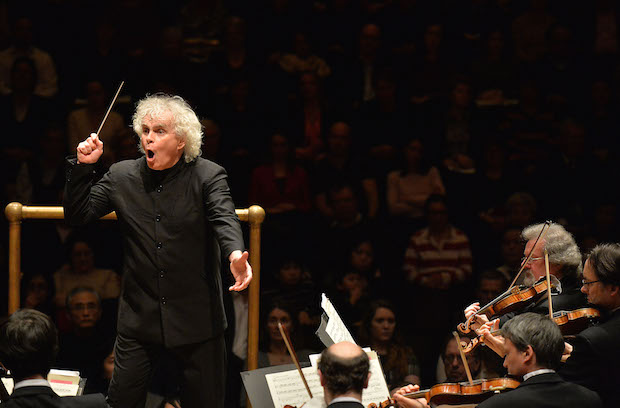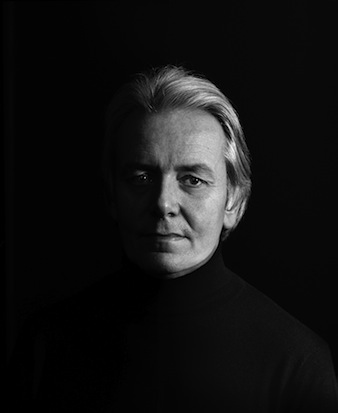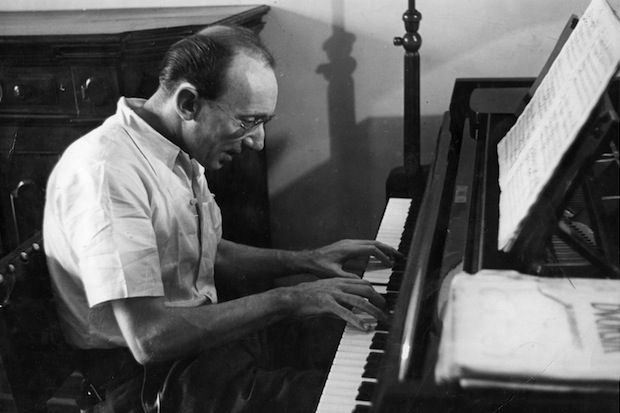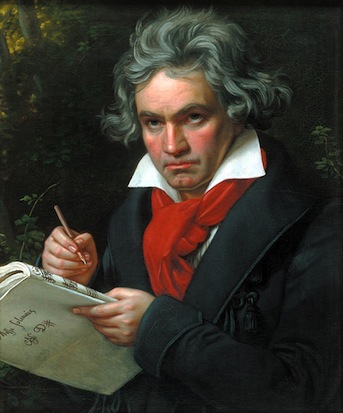How many battles have been fought over sacred music throughout history? The noise you make when you worship is a big deal: those who control it can shape everything from clerical hierarchy to intimate spirituality. And there are patterns. Deep suspicion of music is the mark of the puritan. Fundamentalist Sunni Muslims teach that all music except for chanted Koranic passages is forbidden; instruments in particular encourage lust. Strict Calvinists take a similar line.
Even the Catholic Church considered banning original compositions during services after the Council of Trent. Legend has it that polyphony was saved only by Palestrina’s Missa Papae Marcelli of 1567, which demonstrated that rich harmony could also highlight the words of the text. (A fanciful version of this story is the subject of Hans Pfitzner’s 1915 opera Palestrina, whose more ponderous moments
make Parsifal sound like an advertising jingle.)
Conversely, lovers of opulent worship, and the hierarchical theology it implies, use music to achieve their ends. In the Church of England, High Church clergy who don’t want to describe their Sunday Eucharist as a ‘Mass’ will gently push proceedings ‘up the candle’, as they say, with a Mass setting by Byrd or Mozart. In today’s Roman Catholic Church, too, musical style is loaded with significance. But matters are complicated by the fact that Catholic priests aren’t supposed to be High or Low, or impose their theological preferences on a parish. Music at Mass therefore becomes the continuation of theological warfare by other means — a nasty state of affairs that I’ve witnessed at first hand.
When I was a teenager, I was organist of Christ the King, Reading, a red-brick barn of a church run by a tyrannical but warm-hearted Irish priest, Fr Nugent. His taste in hymns didn’t extend much beyond pre-conciliar favourites such as ‘Soul of My Saviour’ and ‘Sweet Sacrament Divine’ — sentimental numbers often incorporating octave swoops that made the tiny choir sound like ancient Valkyries. Still, they were good tunes and Fr Nugent was happy for me to play the odd 18th-century English voluntary (the easy ones, without pedals).
Then Fr Nugent moved to another parish. Disaster. He was replaced by a priest from Cork who insisted that every hymn had to be ‘popular’ — i.e., set to a bogus ‘folk’ tune with overtones of fake plainchant, nasty enough with guitars but a fairground travesty when accompanied by organ. So I left, and wasn’t surprised to learn that Christ the King’s only interesting architectural feature, its baldacchino, had been demolished to make the sanctuary more ‘simple’.
The story was similar all over the Catholic world: clergy infused with ‘the spirit of Vatican II’ would hand over responsibility for parish music to bossy primary school teachers and other ‘empowered laity’. They could be relied upon to perform antiphons and Mass settings written by diocesan-approved composers whose work sounded as if Hildegard of Bingen had met Joan Baez in a 1970s cocktail lounge. I won’t single anyone out, because that leaves me free to say that some of these composers trousered very large sums of money thanks to viciously enforced copyright laws and a flow of commissions from their mates in the diocesan curia.
There has, however, always been a resistance to this racket from trained Catholic musicians and it’s gathering pace. To see the battle played out, look at the archdiocese of Glasgow. The magnificent Scottish composer James MacMillan has founded an organisation called Musica Sacra Scotland that aims to carve out a new vernacular of parish worship by teaching people to sing English-language chant. Where possible, Musica Sacra will also encourage the return of Latin chant and polyphony — and commission young composers to write congregational music to replace the cod-Celtic garbage forced down the throats of Scottish Catholics since the Council. Crucially, this is not some high-camp exercise by reactionaries: Musica Sacra is orthodox rather than traditionalist, which is why the middle-of-the-road new Archbishop of Glasgow, Philip Tartaglia, has given his blessing to its inaugural conference at Glasgow University on 9 November.
That should settle matters — but it hasn’t, since sacred music and power have always fed off each other and this is no exception. The producers of cod-Celtic garbage have patrons among the senior clergy of several Scottish dioceses. These trendy old priests (and at least one bishop) have employed this populist material — which encourages the ‘community’ to worship itself and its pastor — to reinforce their own personality cults. A move towards a more mystical, God-centred liturgy threatens to dilute their influence. For the first time in 50 years they have been forced on to the defensive in the Catholic culture war. Their reaction to Musica Sacra? A gigantic cry of ‘feck!’ worthy of Father Jack Hackett on the night of a full moon. Music to my ears!
Got something to add? Join the discussion and comment below.
Get 10 issues for just $10
Subscribe to The Spectator Australia today for the next 10 magazine issues, plus full online access, for just $10.
You might disagree with half of it, but you’ll enjoy reading all of it. Try your first month for free, then just $2 a week for the remainder of your first year.












Comments
Don't miss out
Join the conversation with other Spectator Australia readers. Subscribe to leave a comment.
SUBSCRIBEAlready a subscriber? Log in